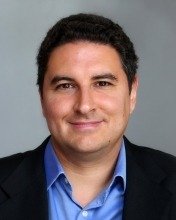4D printed programmable release capsules for spatial control of differentiation in 3D printed cardiac tissue
Grant Project Details:
Grant Location
Grant Description
Using stem cells to repair damaged heart tissue is a promising, but complex area of research. Dr. McAlpine’s research aims to take a significant step forward by creating a "4D printed" system to deliver the biochemicals that tell stem cells where to go, when to grow, and what kind of cells to develop into so that they can regenerate specific kinds of tissues in the heart in an orchestrated manner.
This grant is in no-cost extension.
Interim report:
Repair of the damaged heart poses a unique challenge to the field of regenerative medicine because of its very limited capacity for self-renewal. One of the major challenges in cardiac tissue engineering is producing thick cardiac tissue that can meet thehigh oxygen demands and therefore the need for significant nutrient perfusion of cardiac cells. 3D printing has been proposed as a means not only to build thick cardiac tissue, but to build an entire perfusable human heart graft. The technology enabled bycombining 3D printing ECM-based scaffolds with printed capsules containing molecules and proteins from previous research provides a potential avenue to spatially control the differentiation of stem cells into multiple cardiac cells. To date, we have developed an approach to simulate the payload diffusion and thus estimate the concentration of payload in the 4D printed capsules for differentiation. The release of 4D printed capsules has been improved by using multiphoton excitation with higher accuracy and viability. The molecules released from our printed capsules were able to differentiate stem cells into beating cardiomyocytes. The spatial control of cardiomyocyte differentiation with millimeter-scale resolution in 2D using our printed capsules has been suggested by preliminary data, although replicates and other cell lines are currently being performed to verify these results and quantify the degree of spatial control. These results pave the way for 3D printed cardiac tissue. Indeed, a future step is to achieve spatial control of cardiomyocyte differentiation in a 3D structure and spatially controlled differentiation of human induced pluripotent stem cells into multiple cardiac lineages to engineer cardiac tissue for therapeutic repair.
The technology enabled by combining 3D printing ECM-based scaffolds with printed capsules containing molecules and proteins from previous research provides a potential avenue to spatially control the differentiation of stem cells into multiple cardiac cells. To date, we have developed an approach to estimate the concentration of payload in the 4D printed capsules for differentiation. The release of 4D printed capsules has been improved by using multiphoton excitation with higher accuracy and viability. The spatial control of cardiomyocyte differentiation with millimeter-scale resolution in 2D using our printed capsules has been achieved. These results pave the way for 3D printed cardiac tissue. The next step is to achieve a spatial control of cardiomyocyte differentiation in a 3D structure and achieve spatially controlled differentiation of human induced pluripotent stem cells into multiple cardiac lineages to engineer cardiac tissue for therapeutic repair.
Grant Awardee Biography

Michael McAlpine, PhD, is the Benjamin Mayhugh Associate Professor of Mechanical Engineering at the University of Minnesota. He is the recipient of multiple awards, including the 2017 Presidential Early Career Award for Scientists and Engineers, 2016 NAS Kavli Frontiers Fellow, 2016 Moore Inventor Fellows Finalist, 2015 Extreme Mechanics Letters (EML) Young Investigator Award, and the 2015 SPIE Nanoengineering Pioneer Award.
Read this article on some of Dr. McAlpine's exciting work!


